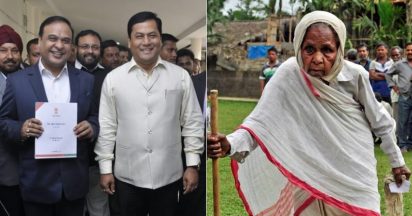According to Census 2011, India is home to almost 100 million elderly(aged 59 and above) and is one of the worst countries to grow old in. Global AgeWatch Index, a UN supported study that assessed countries on the basis of socio-economic welfare of it’s elderly, has ranked India a lowly 73rd out of 91 countries whereas Sweden topped the rankings.
Alarmingly, the study ranked the country 85th in health status. It is no surprise that the country despite emerging as the fastest growing economy in the world is unprepared to take care of its elderly. The study also found that almost 90% of India’s elderly continue to work for survival. 80% of our elderly are in rural areas with 40% below the poverty line and over 73 % illiterate. Astonishingly, about 90 % of them have no official social security (i.e. no PF, gratuity, pension, etc). 73 % of deaths among the elderly are related to heart disease, smoking and cancers. 20% of doctor’s visits, 30 % of hospital days and 50% of bedridden days are ascribed to elderly patients. So our elderly require many levels of care in inaccessible locations.
By 2050, the elderly are predicted to outnumber children under the age of 15, mostly in developing countries like India as a result, reforms for more cost effective health care systems for elderly’s long term care are gaining importance. Sweden is known for it’s social healthcare programs which are mostly funded by citizen’s taxes. Sweden allots 3.6% of it’s GDP on long term care and also provides the highest number of health care workers for the it’s citizens aged 65 and above.
The municipalities are responsible for elderly care and provide funding for home assistance as well as the needs of affordable and accessible housing. If an older person needs assistance from a health care worker, he or she can apply for this assistance. Most regions also offer ready-cooked meals which are even delivered to the elderly’s home. The Swedish government also gives an option to the elderly to either live at home or in accessible housing. Hence, it doesn’t come as a surprise that Life expectancy in Sweden is amongst the highest in the world:- 79.9 years for Men and 83.7 years for women. In 2014, the total cost of elderly care in Sweden was $12.7 billion but what is astonishing is that only 4% of the cost was financed by patient charges.
The move to privatise their elderly care has proven to be a masterstroke for Sweden.
Senior citizens can choose whether they want their special housing to be provided by public or private operators. Almost 24% healthcare services provided to elderly in Sweden was done by private operators as of 2013 while the municipalities assumed overall responsibility which eased the burden of the Swedish Government.
While countries around the Globe are learning from Sweden to improve their healthcare systems, one of our state governments has had a unique idea to improve the state of it’s senior citizens.
The Assam government is set to introduce a law that would make it mandatory for government employees to take care of their parents or face a deduction from their income that would be used for their parents’ welfare. The deducted portion of their pay will be given to the parents by the state. The proposal which was mooted in the state budget is going under rigorous review and all steps are being taken by the social welfare department to bring in the legislation in the current year.
Assam Finance Minister Himanta Biswa Shamra was quoted “It is expected that the percentage of the population over the age of 60 years will continue to increase due to the changing population age structure. Services to cater to this increasing population of the elderly will need to be provided not only by institutional sources but also through familial structures. The intent behind this scheme is to send a strong message in society and inspire our young population to take good care of those gentle pairs of hands which nurtured them and made them what they are today.”
The Assam Government has already taken measures to initiate the process such as a legislative cover to such familial responsibilities. It is a welcome change from a state government who shares a border with a state whose CM, FM and all it’s ministers are working 24X7 to abuse PM Modi and appease the minorities. It’s refreshing to have a government which is going to micro detailing to help out it’s people. This is what you call upliftment which embodies well with the “Sabka Saath Sabka Vikaas” slogan.
While India has still a long way to go to match Sweden, all State Governments must take a cue from the Assam Government and bring in similar legislations in their respective states.
While it’s implementation still remains to be seen but there is no doubt that the decision to link geriatric care to their employer’s pay will prove to be a game changer.
Source(s):- timesofindia.com
indianexpress.com
bbc.co.uk
DNA
globalhealthaging.org
sweden.se




























